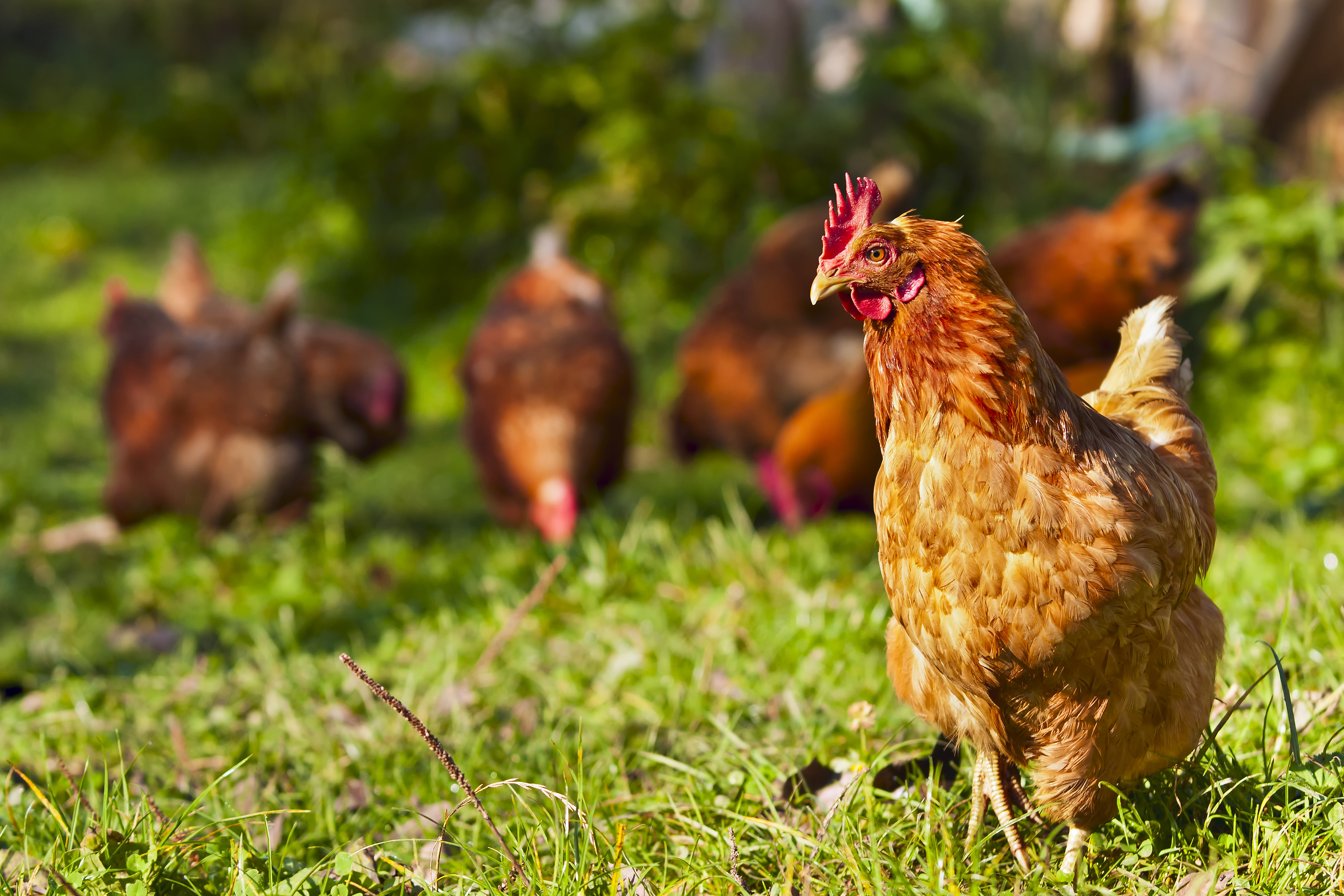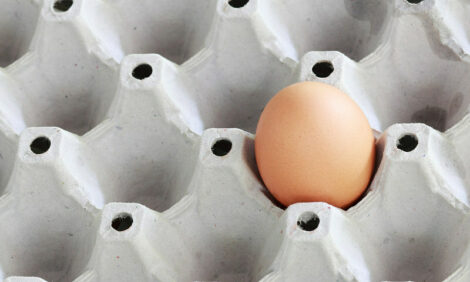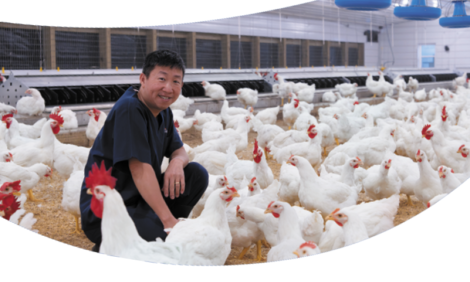



Research: adding foliage to pasture-based chicken habitat may increase growth, reduce infection
A recent study from Oregon State University’s veterinary college found that planting hedgerows in pasture-raised chicken farms may reduce heat stress to help certain chicken breeds grow faster and increase their immune response to better enable them to fight off pathogens.
This, in turn, could improve profit margins for commercial poultry farms who choose pasture-rearing as a more humane way of raising chickens for meat.
The study’s findings are also applicable to anyone raising chickens at home, the study’s authors say.
“The aim of the study was mainly to help smaller producers, people that sell to farmer’s markets and smaller operations that do backyard work, but I think it definitely could benefit people who are just hobbyists,” said Marissa Pollak, one of the authors on the paper, published in Frontiers in Animal Science, and a fourth-year student in the Carlson College of Veterinary Medicine at OSU.
Co-authors include fellow fourth-year veterinary student Holly Rysenga, recent OSU graduates Eilea Delgadillo and Caroline Glidden, assistant professor Brianna Beechler and professor Anna Jolles.
The study, conducted in the summer of 2019, looked at two breeds of chicken popular among commercial broiler producers, Cornish cross and Red rangers. Researchers purchased 80 chicks of each type and separated them into experimental and control groups, so half of each breed was living with access to a pasture with a hedgerow, and half with no hedgerow.
The researchers tracked two main factors: rate of growth, which was measured by weekly weigh-ins, and immune response, measured by looking at white blood cell counts from weekly blood samples.
Cornish crosses with access to a hedgerow showed a modest increase in the speed of growth, and Red rangers showed a slightly improved immune response, compared with the chickens that did not have access to a hedgerow.
The researchers hypothesized that the improvement in weight gain week-over-week was thanks to the decrease in heat stress, as the Cornish crosses with access to the hedgerow benefited from additional shade. The increased weight gain occurred without an associated increase in feed intake among that group. Cornish crosses are popular among commercial breeders due to their faster growth rate, but they are not good foragers and tend to be more vulnerable to outdoor conditions.
There were several very hot days in the summer of 2019, and on those days, Pollak said many of the chickens without access to the hedgerow spent more time inside the coop to get relief from the sun, as the open pasture had no other source of shade.
Red rangers with access to a hedgerow did not show an increase in weight gain, but they did demonstrate a slightly heightened immune response in the bacterial-killing assay test researchers conducted each week.
“We hypothesized it was because they were eating and foraging on a variety of insects and plant matter in the hedge,” Pollak said. Unlike Cornish crosses, the researchers noted, Red rangers are good at foraging outdoors.
A stronger immune response is important for pasture-reared chickens due to the challenge of maintaining hygiene, Pollak said. Farmers can’t fully decontaminate outdoor coops and pastures due to porous materials, so it is difficult to eliminate pathogens such as salmonella after a flock has been exposed.
While the improvements in the hedgerow groups were statistically significant, the results weren’t “night and day,” Pollak said.
“But we did see overall improvements with hedgerows, so I’d still recommend that if farmers have the ability, they put them with their chickens,” she said. “This study is contributing to a body of knowledge that, ideally, should be so much bigger. There’s a lot more that could be done to help people raise pasture chickens.”








